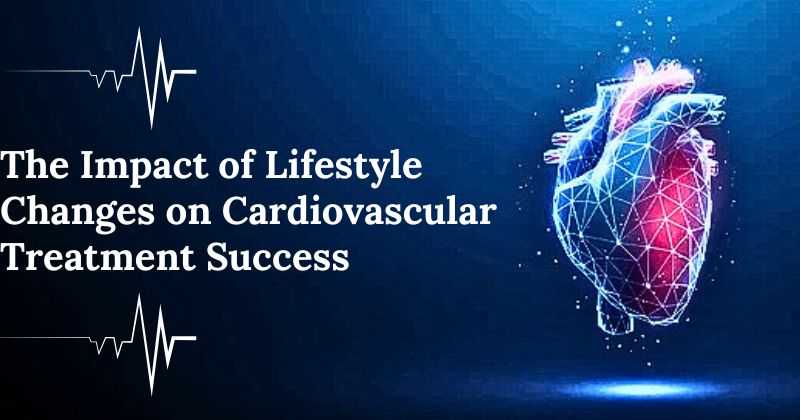
Angioplasty is a type of procedure used to open up a blockage in the arteries of the heart…
The world’s leading cause of death is cardiovascular disease (CVD). Although death rates have decreased due to advancements in ischemic heart disease treatment, the disease’s worldwide burden is still high. To lessen the burden of CVD, healthy lifestyle (HL) habits must be encouraged as preventative interventions, as the condition is still largely avoidable.
Regular exercise, a healthy diet, getting enough sleep, and quitting smoking are examples of HL behaviors that can affect several conventional CVD risk factors as well as cardio-respiratory fitness (CRF), a risk factor that is less frequently assessed. The significance of implementing thorough HL behavior changes is also emphasized by cardiac rehabilitation programs, which have historically placed an emphasis on secondary prevention.
In this blog, we will learn how well lifestyle modifications can improve the outcome of cardiovascular treatments.
1) Eat a Balanced & Nutritious Diet
A healthy diet is necessary for lowering the risk of heart and chronic blood vessel disease. The DASH diet can lower low-density lipoprotein levels. One of the main risk factors for atherosclerosis development is high LDL. A nutritious diet can reduce the risk of type 2 diabetes, improve blood pressure and cholesterol, and protect the heart. This diet consists of:
Things that you should take less of
2) Maintain Your Body Weight
People consume too many calories and fail to exercise regularly. This can increase the chance of becoming overweight or obese. Slimming down can be a major difficulty for many people. But you can lower your risk even if you lose up to 10% of your weight. Cutting down on weight can help in reducing cholesterol and hypertension. It can also aid with diabetes management. You can achieve and maintain a healthy body weight by:
3) Increase Your Physical Activity
Start with a cardiac rehabilitation program if your doctor recommends it, and then gradually add exercise to your daily schedule. By doing this, you can lower your chance of future heart issues and achieve long-lasting lifestyle improvements.
4) Get Sufficient Sleep
Getting a good night’s sleep every night is important for your heart health. The quantity and quality of sleep can affect your health. Excessive or insufficient quantities might be dangerous. Mature people should sleep for nine hours every night. You may increase the quality of your sleep by
5) Reduce Your Stress or Anxiety
Many factors can increase your risk of heart trouble and strokes. You can decrease your stress by adopting various techniques like yoga, meditation, and many more. They are listed below:
6) Giving Up Smoking and Alcohol Habits
After surgery, quitting smoking and alcohol is essential for the health of your heart. Consumption of alcohol and smoking can both negatively impact the CV system. The habit of smoking develops the growth of atheroma in the arteries and damages the blood vessels.
7) Regular Check-ups
Following the operation, you should see the medical professionals frequently. During these appointments, your doctor can monitor your progress, change your medication as needed, and quickly spot any new problems. Early detection is crucial because it enables prompt intervention and treatment, which guarantees the best possible post-procedure care and long-term health results.
Lifestyle changes are called for to improve the effectiveness of cardiovascular treatment. A comprehensive strategy can greatly lower cardiovascular risk factors and enhance treatment results. This strategy should include dietary modifications, physical activity, quitting smoking, managing weight, and reducing stress.
For More:- (Click Here)
© 2024 Crivva - Business Promotion. All rights reserved.